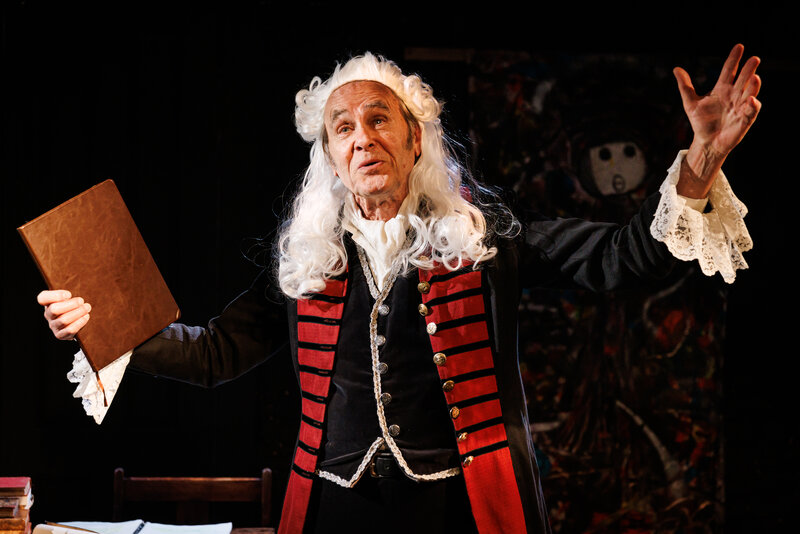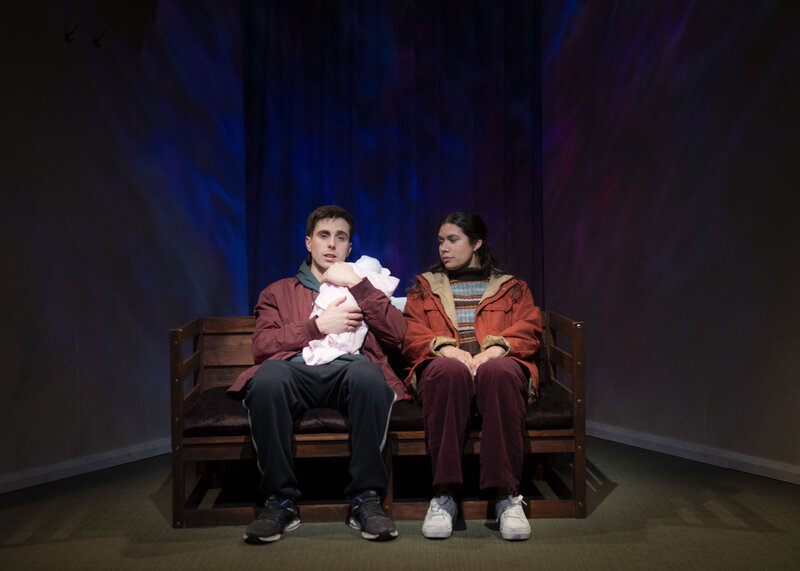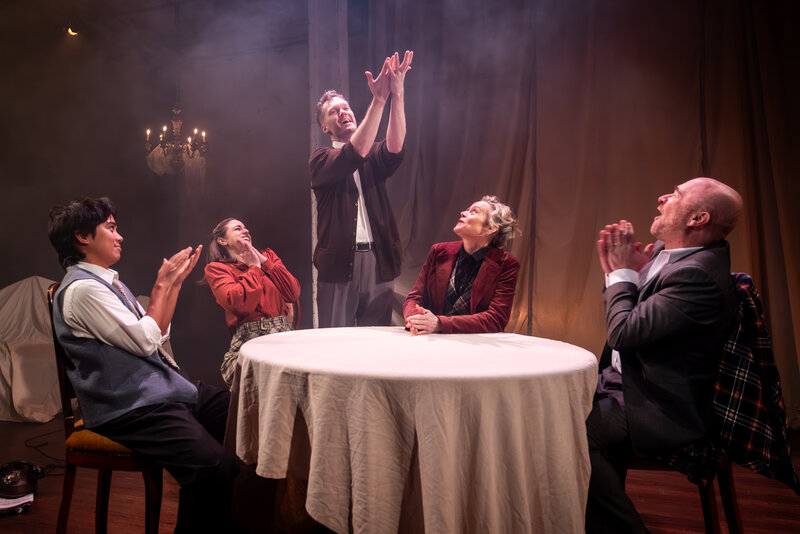Daniel Defoe (born Daniel Foe) may well have been the first English novelist. At least that is the contention in the play Defoe’s Plague, which starts with a man in a thin, eerie, long nosed mask performing an incense cleansing. The head covering looks like that worn by doctors in bygone days and intended to protect them from airborne diseases such as the bubonic plague.

Next, a character merely referred to as Friend questions the authenticity of writers the likes of Shakespeare, F. Scott Fitzgerald and Jonathan Swift. The heat is turned up on the man most famous for his book Robinson Crusoe, which was published in 1719. He – Daniel Defoe – becomes the focus of the work, as he is grilled about his motivations and honesty.
First up, Defoe has written what he claims is a first-hand account of the Black Death that struck London in the summer of 1665. But Friend exposes shortcomings in his “experiences”, driven by the fact that Defoe was only five years of age at the time and wasn’t in London. From there, it becomes a question of Defoe talking himself up and Friend bringing him down, in a most accusatory manner. Make no mistake, there are raised voices, indignation and table thumbing.

Theatrical in nature, Defoe’s Plague has courtroom drama written all over it, but not without humour and contemporary references. We are also encouraged to participate in a singalong … twice. Among the questions vexing Friend is how Defoe managed to curry favour, time and again, being freed from incarceration and engaged in affairs of State. The play builds a picture of a man who was cat-like in terms of reinvention (borne of the myth that a feline has nine lives).
I loved the command of the situation that was imbued in the work – as power shifted between the pair. When Friend believed he had the upper hand, Defoe inevitably bit back. In the end, at least for me, the sheer magnitude of Defoe’s accomplishments, driven by his prolific written output, won the day. He comes across as an astute wheeler and dealer, who is constantly able to rebound from setbacks. At one point, we, the audience, are also able to question Defoe.

The idea of adapting Defoe’s “A Journal of the Plague Year” into an interactive theatre piece was inspired by the experience of COVID-19. In 2020, Phil Roberts (who plays Daniel Defoe) and Alicia Benn Lawler (the director of the piece) began talking about comparisons between Londoners during the Great Plague and their experiences of the pandemic years. What began as an exploratory piece was developed, loosely scripted with text taken from Defoe’s journal. Shannon Woollard (who is cast as Friend) shared in the collaboration.
In studying Defoe’s Plague text, they discovered that the author’s personality and the society he was part of were no less interesting than the Plague itself. That is how they arrived at the first scene, which is set at the equivalent of a writer’s festival in 1722, with Defoe having just published A Journal of the Plague Year. Ever the salesman and propagandist, Defoe has several reasons for being there. Obviously, that includes wanting to boost sales of his new book because he needs the money.

I appreciated the set-up, including the literary and scandalous backdrop, and the lively banter between Friend and … Foe. The piece is well conceived and executed, as Defoe is put through the wringer, but holds his own. Given his personality, his retorts are inevitable. The performances are strong and confident, Shannon Woollard accusatory as Friend and Phil Robert’s defensive and defiant as Defoe.
Dressing Defoe in wig, elegant coat, waistcoat, breeches, silk stockings, jabot and cravat worked a treat, (the costume designer is Romy Sweetnam). The clothing carries gravitas and transports us back in time. With it comes the evocative “period” staging – the centrepiece of which is a small, wooden desk, strewn with papers and two small stacks of well-thumbed books. To the left is a comfortable looking, upholstered armchair and two bottles of liquor on a small, wooden stand. Three large wall hangings are also prominent.

While familiarity with Defoe’s work before entering wouldn’t hurt, the beauty of this 70-minute production is that its confrontational nature brings with it revelations and understanding. Defoe’s Plague is playing at La Mama until 12th November, 2023.
Alex First
Other reviews you might enjoy:
- Essendon Champions: From Thurgood to Hird (Chapel Off Chapel) – theatre review
- Fourteen (shake & stir) – theatre review
- Variations or Exit Music (La Mama) – theatre review

Alex First is a Melbourne based journalist and communications specialist. He contributes to The Blurb on film and theatre.





